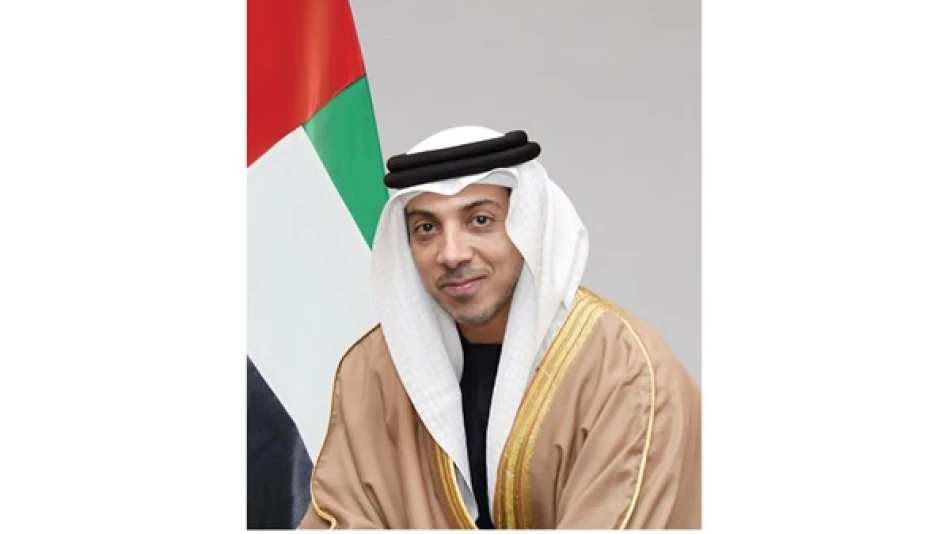
Unveiling the Thrilling 2025-2026 Global Equestrian Racing and Competitions Powered by Mansour bin Zayed
Sheikh Mansour bin Zayed Al Nahyan is launching the UAE's most comprehensive horse racing season yet, bringing together endurance racing, Arabian horse beauty contests, and speed competitions under one unified program for 2025-2026. This marks a major push to cement the UAE's position as the global capital of equestrian sports while preserving the country's deep-rooted horse heritage.
The season represents more than just sporting events. It's part of the UAE's broader strategy to become the world's leading destination for all forms of equestrian competition. Sheikh Mansour, who serves as Deputy Prime Minister and Presidential Court Chairman, emphasized that this initiative connects traditional Emirati values with modern professional standards.
Here's what makes this significant: The UAE is positioning itself as the bridge between heritage and high-performance sport. While many countries focus on just one type of horse competition, the Emirates is creating a comprehensive ecosystem that covers everything from Arabian horse beauty to grueling 160-kilometer endurance races.
**The Competition Calendar**
The Arabian horse beauty championships kick off the season on October 28-29, 2025, with the UAE Arabian Horse Society National Championship. This leads into a packed November schedule featuring the UAE National Arabian Horse Beauty Championship and the Arab Breeders Championship.
The crown jewel comes in February 2026 with the Abu Dhabi International Arabian Horse Beauty Championship, which carries "Title Show" classification - the highest level in global Arabian horse competitions.
Endurance racing takes center stage at the Emirates International Endurance Village in Al Wathba. The highlight is the 160-kilometer President's Cup on February 8, 2026, one of the most challenging races in the sport. Other notable events include the 120-kilometer UAE National Day Cup and multiple 100-kilometer races dedicated to private stables and female riders.
Speed racing rounds out the program with two major events at Abu Dhabi Racecourse: the President's Cup for Purebred Arabian Horses in December 2025 and the Abu Dhabi Golden Cup in February 2026.
**Economic and Cultural Impact**
This isn't just about sport - there are substantial economic stakes involved. The horse industry in the UAE supports thousands of jobs in training, breeding, veterinary care, and event management. By creating a unified season, the country aims to attract more international participants and extend the economic benefits across a longer period.
The cultural dimension matters equally. Horse breeding and racing connect directly to Bedouin traditions that shaped Emirati identity. Sheikh Mansour specifically mentioned giving younger generations a chance to connect with their ancestors' heritage.
For the global equestrian community, this creates new opportunities. International horse owners and trainers now have a clear pathway to compete across multiple disciplines in one location, potentially reducing travel costs and extending their competitive season.
Mohammed Ahmed Al Harbi, Director General of the UAE Arabian Horse Society, noted that the program builds on previous successes while expanding the scope. The society has worked to ensure each event meets international standards, particularly the "Title Show" classification that puts Abu Dhabi on par with major European and American competitions.
The Al Wathba facility has invested heavily in infrastructure to support the expanded calendar. Muslim Al Ameri, the facility's director general, highlighted improvements in track surfaces and safety measures that meet international endurance racing standards.
At Abu Dhabi Racecourse, engineer Ali Al Sheiba emphasized the technical preparations needed to host world-class speed racing, including track maintenance that ensures both horse and rider safety during high-speed competitions.
The unified approach reflects broader changes in how countries develop sports tourism. Rather than hosting isolated events, the UAE is creating a comprehensive experience that keeps participants and spectators engaged across multiple months and disciplines.
This strategy could influence how other nations approach equestrian sport development, particularly in regions where horse culture plays a significant cultural role. The success of this integrated model will likely determine whether other countries adopt similar comprehensive approaches to their own horse racing industries.
Most Viewed News

 Layla Al Mansoori
Layla Al Mansoori






